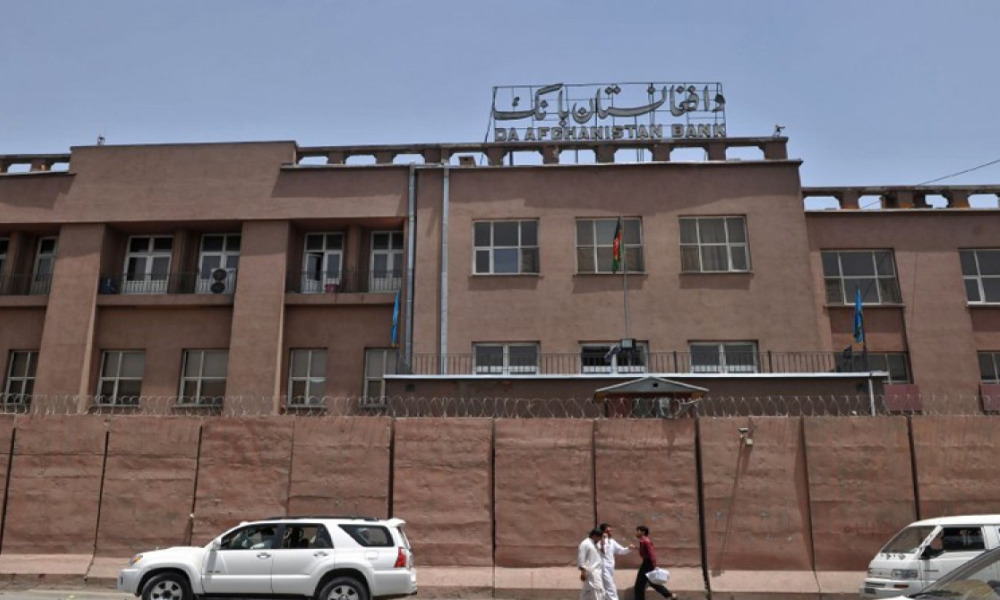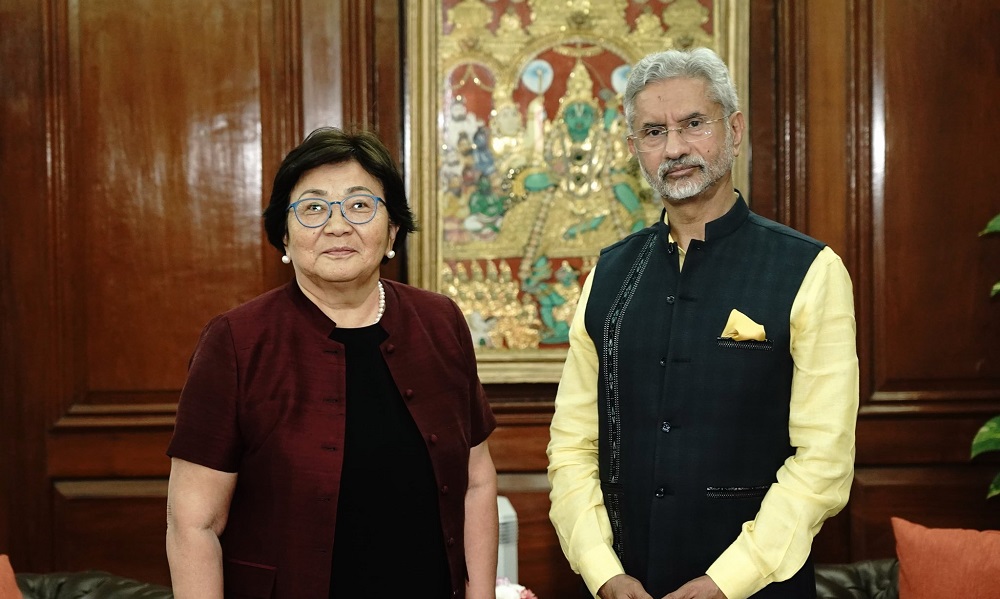Latest News
Afghan central bank board member asks Biden, IMF to release funds

A senior board member of Afghanistan’s central bank is urging the US Treasury and the International Monetary Fund to take steps to provide the Taliban-led government limited access to the country’s reserves to avoid economic disaster.
The Taliban took over Afghanistan with astonishing speed, but it appears unlikely that they will get quick access to most of the roughly $10 billion in assets held by Da Afghanistan Bank (DAB), which are mostly outside of the country, Reuters reported.
US President Joe Biden’s administration has said any central bank assets the Afghan government have in the United States will not be made available to the Taliban, and the IMF has said the country will not have access to the lender’s resources.
Shah Mehrabi, an economics professor at Montgomery College in Maryland and a member of the bank’s board since 2002, told Reuters in a telephone interview on Wednesday that Afghanistan faces an “inevitable economic and humanitarian crisis” if its international reserves remain frozen.
Mehrabi stressed he does not speak for the Taliban but is making this push in his capacity as a sitting board member. He said he plans to meet with US lawmakers this week, and hopes to talk to US Treasury officials soon as well.
“If the international community wants to prevent an economic collapse, one way would be to allow Afghanistan to gain limited and monitored access to its reserves,” he told Reuters.
“Having no access will choke off the Afghan economy, and directly hurt the Afghan people, with families pushed further into poverty.”
Mehrabi is proposing that Washington allow the new government in Kabul a limited amount of access each month, perhaps in the range of $100m to $125m to start with, that would be monitored by an independent auditor.
“The Biden administration should negotiate with the Taliban over the money in the same way they negotiated over the evacuation,” he said.
If the assets remain entirely frozen, then inflation will continue to soar, Afghans will not be able to afford basic necessities, and the central bank will lose its main tools for conducting monetary policy, he said.
The Taliban can survive on customs duties, increasing opium production, or selling off captured American military gear, but everyday Afghans will suffer and be solely reliant on international aid if the country does not have access to currency, Mehrabi added.
After nearly 20 years of American intervention, the Afghan economy is heavily dollarised, and depends on imports that largely must be purchased with foreign currency, he said.
With overseas reserves off-limits, Da Afghanistan Bank may be undermined after having cultivated a non-political, technocratic institution that so far has been allowed to continue its work under the Taliban, Mehrabi said.
“Their work there is not based on who is in power,” he said, noting that he has not been personally in touch with Taliban representatives, but is in daily contact with colleagues running operations there now.
Ajmal Ahmady, who led the central bank until the capture of Kabul, has said about $7 billion of DAB’s assets was held as a mixture of cash, gold, bonds and other investments at the US Federal Reserve.
Most of the rest is in other international accounts and at the Bank for International Settlements, a bank for central banks based in Switzerland, and not physically in DAB vaults, he said – leaving about 0.2 percent or less of the total accessible to the Taliban.
Latest News
IEA urges World Bank to resume work on 7,000 incomplete projects

Officials at the Ministry of Rural Rehabilitation and Development (MRRD) say 7,000 incomplete projects of the World Bank are at risk of destruction in Afghanistan. They call on the World Bank to resume the work of these projects.
According to them, discussions have been held with the World Bank about these projects, but there has been no result yet.
“7,000 incomplete projects are being destroyed, and if the work is not started, these projects will be destroyed. We ask the World Bank to resume the work of these projects as soon as possible,” said Noorul Hadi Adel, the spokesperson of MRRD.
Meanwhile, members of the private sector also ask international institutions to resume their work in Afghanistan.
According to the officials of this sector, with the start of these projects, job opportunities will be provided for thousands of people in the country.
“These projects create employment for our people and the country will grow a lot,” said Mirwais Hajizadeh, a member of the private sector.
However, economic experts stated if the work of these projects does not start soon, they will be destroyed and the investments made in them will be wasted.
Latest News
Ten people killed by floods in Helmand

Ten people have been killed and six others injured by floods in Helmand province in the past week, local officials said on Friday.
According to officials, seven of those were members of the same family, and they were killed in Kajaki district last night.
“Most of the people moved from vulnerable areas to high lands and mountains, and thanks Allah the number of casualties is low,” Sher Mohammad Vahdat, the head of information of the Directorate of Information and Culture in Helmand, said adding rescue teams and security forces have been dispatched to help people.
It is said that the telecommunication system has also been disrupted due to the effect of floods in Kajaki district. Floods have also destroyed thousands of acres of agricultural land.
Latest News
UN envoy meets Indian foreign minister to discuss Afghanistan

Roza Otunbayeva, the UN Secretary General’s Special Representative for Afghanistan, met with the Indian Foreign Minister Subrahmanyam Jaishankar in New Delhi and discussed issues related to Afghanistan, it was announced on Thursday.
During the meeting, Otunbayeva thanked India for “its critical humanitarian support and longstanding friendship for the Afghan people” and discussed the importance of regional and international cooperation to address prevailing challenges in Afghanistan, UNAMA said on X.
Jaishankar also said on X that the sides exchanged views on the current situation in Afghanistan.
“Underlined that India has provided wheat, medicines, pesticides and school supplies. Appreciate the role of UN agencies as partners in these endeavors,” he said.
-

 Sport4 days ago
Sport4 days agoACL fever grows as fixtures finalized
-

 World5 days ago
World5 days agoUS will not take part in any Israeli retaliatory action against Iran
-

 Latest News5 days ago
Latest News5 days agoOver 50 people dead in traffic accidents over Eid
-

 Latest News4 days ago
Latest News4 days agoUS identifies Kabul airport suicide bomber
-

 Business4 days ago
Business4 days agoAfghanistan-Kazakhstan chamber of commerce opens in Herat
-

 Latest News5 days ago
Latest News5 days agoGood rains enable DABS to increase power production in Kabul
-

 World4 days ago
World4 days agoIsraeli military vows response to Iran attack as calls for restraint mount
-

 Sport2 days ago
Sport2 days agoATN secures exclusive rights to broadcast Paris 2024 Olympics
























